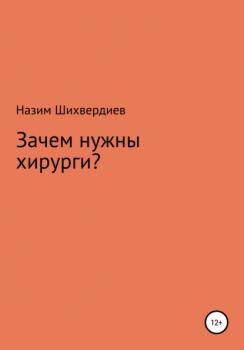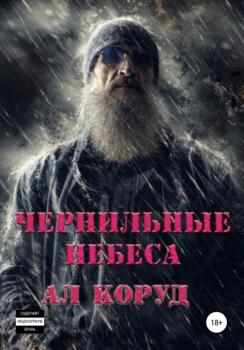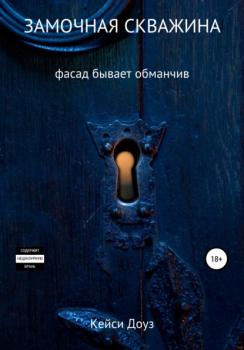Автор
Все книги издательства АвторЗачем нужны хирурги?
Книга написана хирургом о хирургах, их взаимоотношениях с пациентами и коллегами. Предназначена для широкого круга читателей. В ней повествуется о самых разных сторонах жизни хирургов и не только. Главная идея – хирургия – это не профессия, а образ жизни. Основная мотивация – позитив. Мы все имеем свои сильные стороны и свои слабости, у каждого две руки, две ноги, одна голова. И живем мы все на одной земле. Давайте лучше понимать друг друга и с большим пониманием относиться к окружающим.
Двойня для босса. Стерильные чувства
– Помоги, Стас, – шепчу я умоляюще. – Нам больше не к кому обратиться. – Я похож на мецената? – бросает он небрежно. – У твоих детей должен быть отец, в конце концов! Подай на алименты. – Но… Это ты! Ты – их отец, Стас! – Я не могу иметь детей! И ты знала об этом в ту ночь. – Стас… – всхлипываю я. – Хватит, – чеканит строго. – Я – ваш босс, Алиса Игоревна. Соблюдайте субординацию. И не забывайте, что я женат. *** Нас связала одна случайная ночь. Ошибка, после которой мы расстались навсегда. Мы оба считали себя бесплодными, однако произошло невозможное. Я стала мамой двойни, но их отец не знал об этом. Прошло три года, и теперь он – мой босс. Убежденный чайлдфри, помешанный на карьере. А еще… он женат.
Принципам вопреки
– Нет, – Вадим поджал губы. – Меня не интересует ваше предложение. – Нет, Вадим, ты не понял, – Михаил вдруг резко подался вперёд и буквально навис над Суворовым будто хищная птица. – Твоё желание меня не волнует. У тебя есть неделя, чтобы закончить здесь все дела и прилететь в Санкт-Петербург. О вещах не беспокойся, и за домом тоже присмотрят. – Нет, это вы не поняли, – Вадим вцепился пальцами в набалдашник трости до побелевших костяшек. Он был взбешён. – Я никуда не поеду. – Поедешь, – спокойным, но жутким голосом ответил Михаил. И Суворов отчего-то ему поверил. – Если хочешь, чтобы с твоим другом и его бизнесом всё было хорошо, поедешь. От автора: 3 часть цикла Испытание
Испытание любовью
У Андрея Громова есть всё – шикарный дом, дорогие машины, любимое дело. И любимый человек. Отношения с Федей завертелись так быстро, что оба не успели ничего осознать до конца. И теперь им придётся учиться жить вместе, понимать друг друга и уважать чужие желания. Но как же сложно удержать всё под контролем, особенно когда прошлое снова даёт о себе знать, а любовь оказывается тем ещё испытанием. От автора: Вторая часть цикла "Испытание"
Синий шкаф
В семье Марка и Юли исчезают родители, а их преследуют. Каждый раз их выручает синий шкаф, который перемещает их в другое место или в другой мир. Там они встречают новых друзей и врагов, попадают в интересные истории. Знакомятся с маленькой королевой, повелительницей драконов. Попадают к ледяным, кусающимся Моррам, в сонный лес с коварными существами и страну Фей. Художник подарил волшебную краску, которой можно нарисовать двери и люки и перемещаться в другой мир, или нарисовать кого-то, кто тут же оживал. Марк, Юля и их друзья летают на драконах и идут по жаркой пустыне . Оказываются в пещере, где встречают племя и зеркальном городе, в котором ночью никто не выходит из дома. С Марком, Юлей и их друзьями происходят превращения. Пропавшие родители тоже попадают в волшебный мир, они вспомнили, что в этом мире они уже были, но их заколдовали, и никто их не видит. Ищут своих детей и попадают к паукам.
Чернильные небеса
Можно ли остаться человеком, попав в мир, который оказался сломан? На границах которого высится Чернильное небо, готовое обрушиться вниз и стереть все живое с лица мироздания. Что с таким остервенением вторгается в нашу Вселенную, есть ли отсюда выход и как стоит вести себя человеку, неожиданно оказавшемуся на стыке миров? Каждый ответ на эти вопросы таит за собой страшную смерть и немедленное стирание собственных копий со всех дисков параллельных Вселенных. Представляем вам боевик-квест с НФ дополнениями, так что скучно не будет. Кто-то из постоянных читателей найдет здесь давно позабытое старое. Ждите продолжения Содержит нецензурную брань.
Добрые семена Сонца. Книга 1
Главный герой этих добрых историй – мальчик по имени Сонц. Он задает вопросы, делает выбор и совершает поступки, которые учат его, как быть счастливым самому и дарить счастье другим. Рядом с ним всегда есть заботливые люди, помогающие понять принцип «что посеешь, то и пожнешь». Эти добростории понравятся как детям, так и взрослым. Душевного чтения для сердца и разума!
Қанжар
2001 жылы 21–ші қаңтар күні Жер ғаламшарына келімсектер келді. Ол кезде біз үшін келімсектердің кім екені де, олардың қай ғаламшардан келгені де белгісіз болды. Адамзат үшін өзге ғаламшарлық қонақтардың тілі, технологиясы, немесе өркениеті белгісіз болған. Бірақ біз үшін анық ақиқат: жатғаламшарлықтардың қару-жарағы бізге қарағанда әлде қайда дамыған, екіншіден, олар оны бізге қарсы қолдана алады және қолданды. Сол жылы жер жүзінде болмаған ең үлкен және ең қанды соғыс болды. Егер бұған дейін адамдар адамдармен соғысса, бұл жолы қанды шайқаста құру алдында тұрғандықтан бүкіл халық ортақ жаумен шайқас үшін бір жұдырық жұмыла жұмыс жасасты. Соғыстан кейінгі жылдарда тіпті егер алғашқыда қарағанда одақта тату тәтті өмір сүрсек те, «Жер» тұрғындары жатғаламшарлық шабылшыларға қарсы жасырын қарсылық күштері олардың әлсіз жерлерін тауып күшті соққы беруге деген талпыныстарын бір мезетке де тоқтатқан жоқ болатын. Осындай қарсылық күштерінің ішіндегі топтарының біреуі«Қанжар» деген атауға ие.
Аж 2 О!
Виктория едет на все лето к своей подруге. Главная цель поездки – с шиком отпраздновать 20-летие, прекрасно отдохнуть вдали от дома и получить массу позитива от летних приключений, чему способствует курортная деревушка на побережье горного озера. Приключения начинаются уже по дороге на Иссык-Куль, где автобус, на котором она ехала, чудом избегает аварии, ломаясь на ходу.
Замочная скважина
В городе случается невероятная трагедия. Жертвами становятся шестеро членов семьи Райтсон-Вудли. Они все погибают. Райтсоны-Вудли известны в городе. Они идеальная семья. Взрослые хотят равняться на невероятной красоты жену или успешного бизнесмена мужа. Подростки на популярную дочь и сына – капитана баскетбольной команды. Что могло привести к этой трагедии? Замешано ли в ней нечто паранормальное? Насколько хорошо вы знаете окружающих вас людей? А насколько хороши они знают вас?.. Содержит нецензурную брань.









